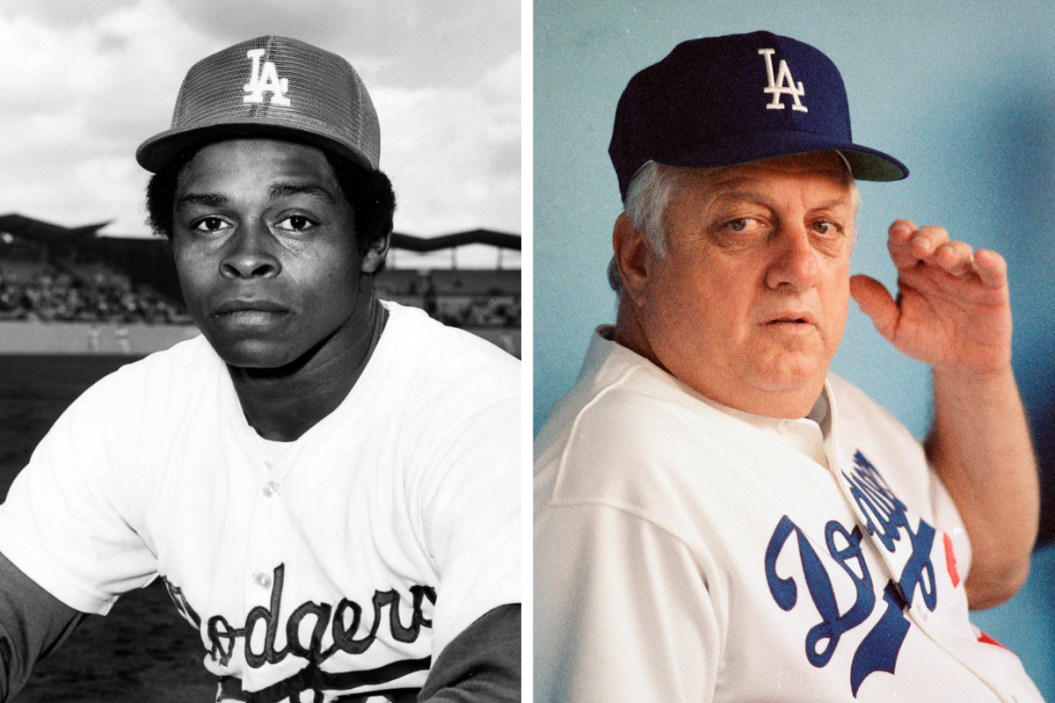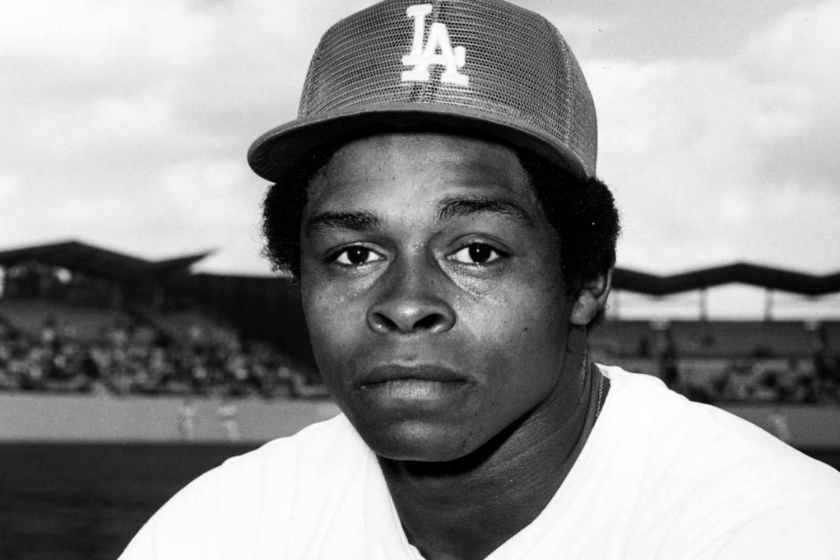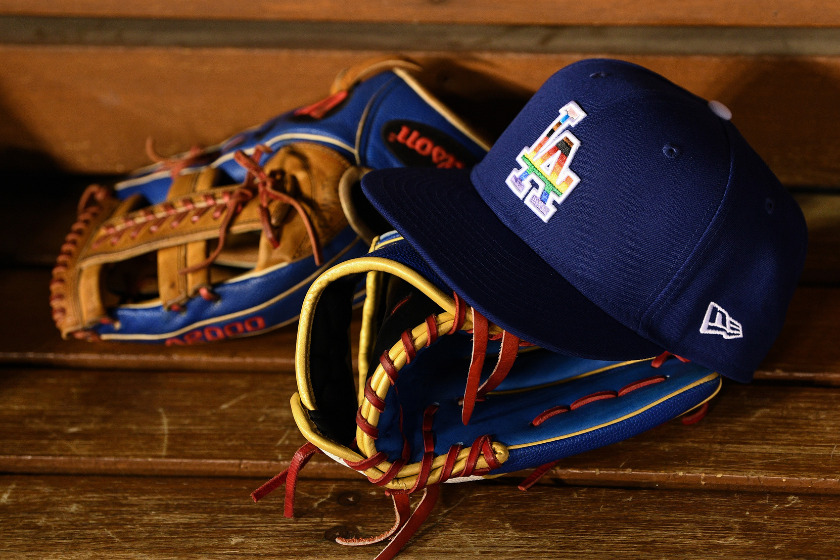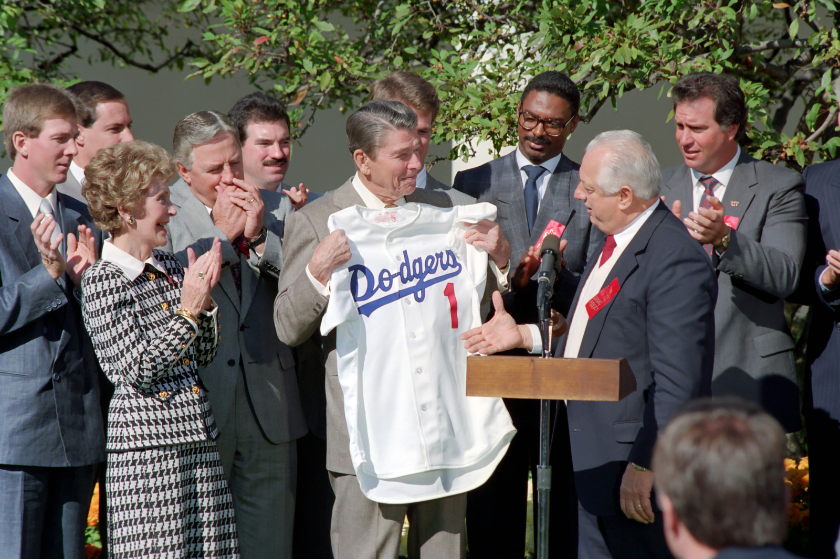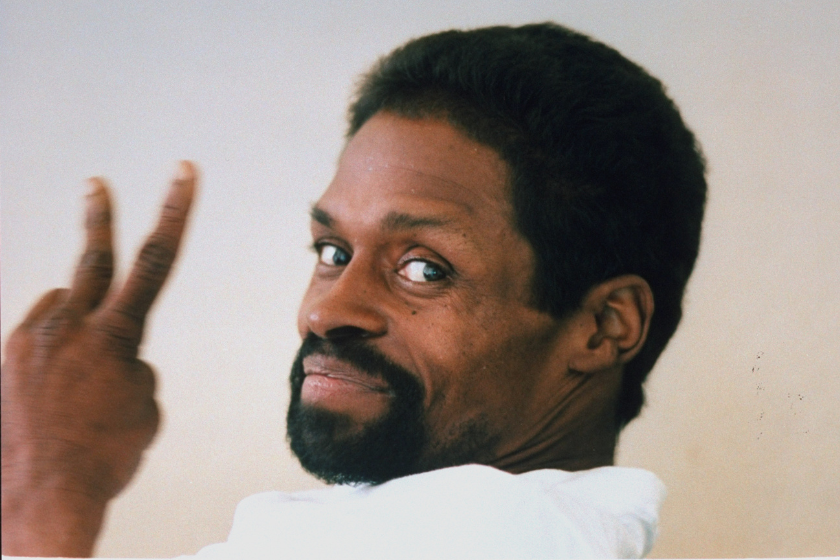In 2022, the Los Angeles Dodgers held their ninth annual Pride Night at Dodger Stadium, in celebration of the LGBTQ+ community of the greater Los Angeles Area and around the world, when they faced off against the New York Mets. Pride Nights are not a new phenomenon and almost every MLB team has held one (looking at you, Texas Rangers), but this Pride Night was different.
Videos by FanBuzz
On June 6, 2022, the Dodgers honored former player Glenn Burke, who played for the team briefly in the 1970s and is well known for being the first openly gay player in professional baseball after coming out to his teammates and coaches while a member of club.
"Glenn probably would have said, 'Dang, about time!'" Lutha Burke Davis said to the New York Times. "He'd be grinning from ear to ear. He would be thrilled that he was thought about that much, really."
His niece also added this poignant thought, saying "being made partially whole, a part of the Dodgers' fabric, I'm excited and ecstatic that my uncle will be acknowledged as a part of the team, with his contributions and his character not being in question anymore."
And while 40 members of Burke's family were on hand for the belated celebration, the elephant in the room was the less-than-supportive history between Burke and the Dodgers.
Glenn Burke and the Dodgers Begin Their Relationship
Burke was a Major League sparkplug if there ever was one. He was fast, he could field and he basically had springs for legs.
"He could jump out of a stadium," said Rick Monday, the Dodgers centerfielder and Burke's teammate in 1977. "With his vertical leap, he could have been one of Santa's reindeer."
On any other team, Burke is the starting centerfielder and leadoff hitter, but on the Dodgers roster, he was the supportive backup at all three outfield positions. But Burke knew how to be the supportive, incredible teammate his Dodgers needed, both on the field and off.
"I tell you, he was the life of the party," Dusty Baker said to the New York Times. "He'd get out and dance; he could dance his butt off. He'd crack on anybody, and we loved having Glenn around. Glenn was a big part of our team, man. And he was a hell of a ballplayer who was learning how to hit."
On October 2, 1977, Dusty Baker hit his 30th home run of the season, during the Dodgers' final regular-season game. As Baker was walking back to the dugout, Burke came bounding out the dugout. In a moment of pure joyous, celebratory exuberance Burke raised his hand to Baker, who slapped it. The High-Five was born.
"People talk about the high-five," Baker recounted. "Glenn started that. All I did was reciprocate to it."
Burke was the teammate you dream about having. He knew his role, excelled in it and when given the opportunity to shine, he exploded. When the Dodgers advanced to the 1977 World Series, their normal everyday centerfielder Rick Monday wasn't good to go for Game 1. Glenn leapt at the opportunity to start and in the sixth inning, with Steve Garvey on base, he drove a single to centerfield that would've put the Dodgers up by two runs and possibly won the game.
Unfortunately, the Dodgers would drop the 1977 Fall Classic to the Yankees in six games, 4-2. But for Burke, things were about to take a turn within the Dodgers organization.
The Burke/Dodgers Fallout in 1978
In the offseason after the World Series run, Dodgers Vice President Al Campanis took a trip to the Bay Area to pay Burke a visit. According to Burke's autobiography "Out at Home," which was published the same year he died in 1995, Campanis wasn't just making a social call, he had an offer for his backup outfielder.
Campanis' offer was simple: if Burke were to get married, Campanis would give him a lavish $75,000 honeymoon. For context, that was the equivalent to a full year's salary. When told he was to get married, Burke reportedly asked: "to a woman?" At that moment, the Dodgers would put into motion a set of plans to get Burke out of the organization.
Also, if the name Al Campanis rings a bell, it's because he was the Dodgers executive who went on "Nightline" and said racist statements about Black ballplayers and managers. That's the same guy.
At the same time, Dodgers manager Tommy Lasorda was also unhappy with Burke's presence both in the locker room and in Lasorda's personal life. During his time in LA, Burke had grown close to Lasorda's son, Tommy Jr., who also went by "Spunky." Although it was common knowledge to those around him, Lasorda refused to acknowledge or accept that Spunky was gay. Burke and Spunky could be seen out in West Hollywood, where the two became notable socialites. At one point, Spunky and Burke even came close to staging a drag show at the Lasorda residence but chickened out before they could knock on the door.
Before he started hanging out with Spunky, Burke and Lasorda had a fantastic relationship, but things changed quickly. What was once a warm relationship grew cold with Lasorda chewing out his young bench player in front of teammates. "Glenn had such an abundance of respect and love for Tommy Lasorda," Burke's sister remembered years later. "When things went bad at the end, it was almost like a father turning his back on his son."
The Dodgers found someone to take Burke in 1978. When the announcement was made that Burke had been traded to the Oakland Athletics, some of his former Dodger teammates cried in their lockers. LA Sportswriters described the trade as "sucking the life out of the Dodgers clubhouse."
Burke's Dodger teammates did not care that he was gay. To the majority of them, Burke was a vital member of their roster who loved and respected him, even those teammates who knew he was gay. The problem was with management. Decades later, Dusty Baker came right out and said what he and his Dodger teammates knew all along.
"We know, kind of the reason, he was traded because he was gay. And ... you can't be any more blunt than that."
Glenn Burke After Leaving Chavez Ravine
Glenn Burke's time in Oakland didn't begin with a bang, instead, it began with manager Billy Martin introducing him to the team by using a homophobic slur. From there, Burke knew his days in the big leagues were numbered. After just over 100 games in two years with Oakland, Glenn Burke was out of major league baseball after being sent to Oakland's minor league club. Soon after, he hung up his cleats for good.
The years that followed were hard, with Burke falling into issues with homelessness, hard drugs and alcohol while back in Oakland and San Francisco. But he did find peace through sports again, when he became a gay sports icon winning multiple medals in the Gay Games, first winning medals in the 100- and 200-meter sprints in the inaugural Gay Games held in 1982, as well as competing for medals in basketball four years later in 1986. Speed and vertical leaps: the Glen Burke specialty.
In the final months of his life, Glenn Burke spent his time with his sister in Oakland. They would sing together and she would rub his feet while he cracked jokes and provided her with ample reason to smile. Glenn Burke passed away on May 30, 1995, due to AIDS complications.
Tommy and Spunky Lasorda's Complicated Relationship
When Burke's battle with AIDS came to light in 1994, it was the Oakland Athletics, not the Dodgers, who reached out to help Burke and his family financially.
The Dodgers had distanced themselves from both the AIDS crisis and Glenn Burke, especially after the death of Tommy Lasorda Jr. in 1991. The official cause of death given by the coroner was "pneumonia," which the elder Lasorda claimed was the true cause of his son's death. However, at the time of his death, doctors and coroners were still marking AIDS-related deaths as simply "pneumonia" rather than "complications from HIV or AIDS." Lasorda once said, "I don't care what people ... I know what my son died of. I know what he died of. The doctor put out a report of how he died. He died of pneumonia."
After the death of his son, Lasorda remained staunchly ignorant to his son's truth, telling GQ magazine in 1992, "My son wasn't gay. No way. I read that in a paper. I also read that a lady gave birth to a f***ing monkey. That's not the truth."
In the days after Tommy Sr.'s death in 2021, Penelope Spheeris fought with how she should remember a man who tuned out his son's identity. "I always felt that it should be more public that Sr. had a son that was gay and gorgeous and everything that Tommy was." But it was one of her final thoughts that sounded familiar to this writer when I read her interview.
https://twitter.com/Ron_Athey_2/status/1349055700920455168?s=20&t=vhpKWH5jFX5lWGREi3pRpA
"I don't want to be mad at Tommy Lasorda Sr. I don't want to be mad at somebody who just passed away and somebody that everybody loves. What I'm going to be mad at is the culture that allows that kind of thinking. That's what I don't like. Could you imagine? It was such a struggle between the two of them to try and balance keeping Sr.'s. legacy and career on track while having a gay son in such an environment where people just have no tolerance for gay people."
That's almost the exact same sentiment that came from Billie Jean King, who spoke to the New York Times about Glenn Burke's legacy. "These celebrations are important," King said. "Just for one moment, you slow down and think about whatever is being celebrated, think about the deeper meaning as well as the fun part. There's a lot to celebrate. But we also need to be very vigilant."
Billie Jean King was outed against her will and lost millions of dollars in endorsements when she came out during the 1980s.
How Glenn Burke's Legacy Transcends Time
Billy Bean, MLB's senior vice president for diversity, equity and inclusion, is still the only other Major League baseball payer to come out as gay, although Bean did after his playing days were over. And after the Tampa Bay Rays bullpen fiasco this season, it's clear that MLB still has a long way to go before they can fully embrace a player like Burke and Bean. But that's why it's important to remember what Burke went through because he refused to be anything other than himself.
There are a lot of ways to describe Glenn Burke.
You could paint a picture of a high school basketball star. A kid from Oakland who seemed to defy the laws of physics to dunk with both hands, despite being under 6 feet tall.
There was Glenn Burke the solid role player on a loaded Los Angeles Dodgers team in the mid-1970s. Those Dodger teams headlined by the likes of Steve Garvey, Rick Monday, Dusty Baker, Reggie Smith and Ron Cey seemed destined to win a World Series. They would eventually, but Burke wouldn't be on the roster.
There's the Glenn Burke whose youthful exuberance transcended the verbal and into the physical. When words of joy and celebration weren't enough, Glenn Burke was the first person to offer a high-five to another player, his teammate Dusty Baker.
Beyond the sports world, there's the Glenn Burke who found life after baseball, but not the cushy retirement vibe that most players are afforded. Burke felt the roughness, the rigidity and the challenge that is living after he was ousted from baseball. That's the Glenn Burke who struggled and fought to survive.
And towards the end of his life, there was Glenn Burke, a gay man who lived in the truth, fought against homophobia and refused to be anything other than his authentic self.
That's the Glenn Burke we should remember. But, that's the thing, Glenn Burke was never anything but all those things wrapped up into one hurricane of a human being. And that's the way he should be remembered: a singularly incredible person, who only a few were lucky to call him a friend.
